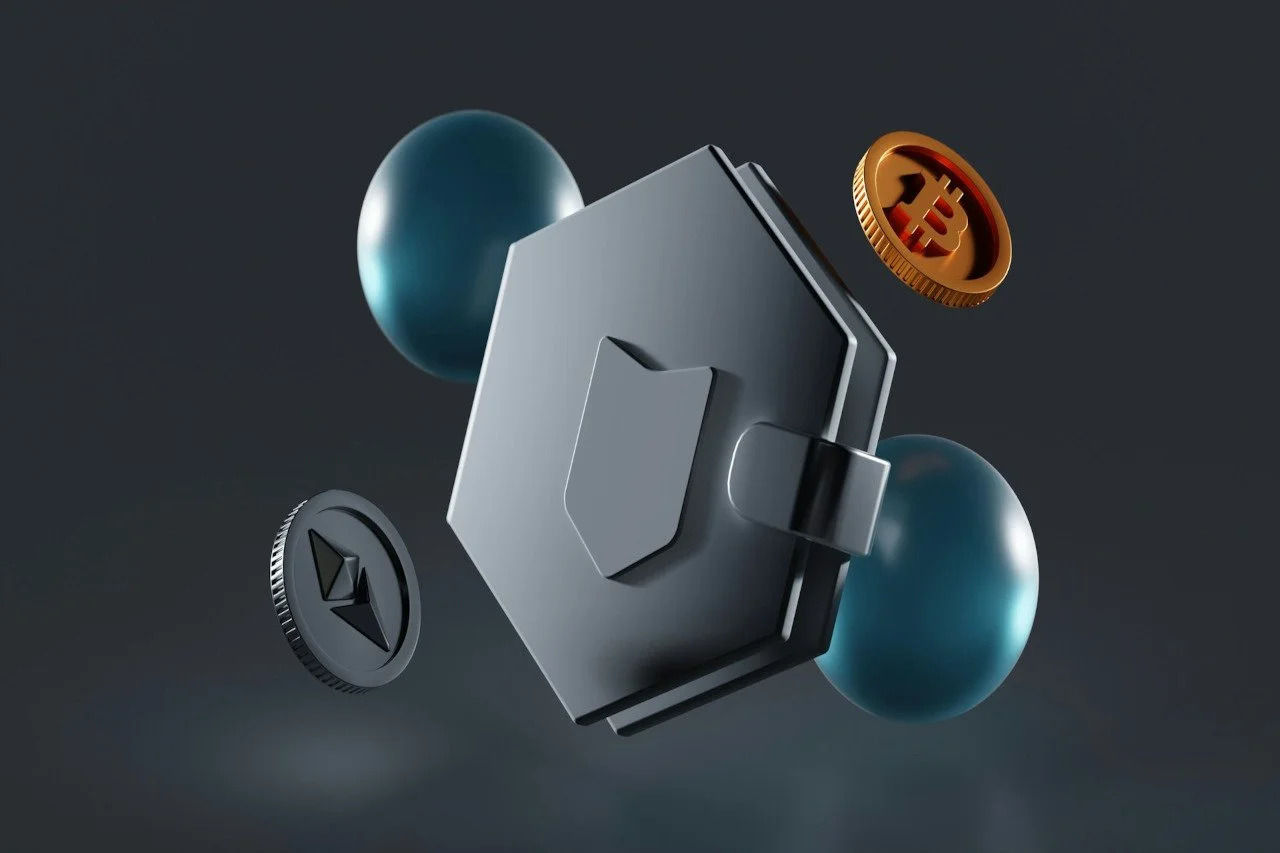Why Memory and Observation Are Survival Skills
how to improve memory for bugout scenarios
In a world where every second can be decisive, the ability to notice small details and instantly recall critical information isn't just useful-it's essential. For those who live by the principles of the grayman, bugout, or prepper mindset, cognitive skills are another tool in the survivalist's kit.
Being a "grayman" means blending into the crowd, avoiding attention, while still seeing more than others do. In a bugout scenario, memory of routes, supplies, and signals can be the difference between safety and chaos. And for a prepper who systematically prepares for any scenario, training the brain is part of the daily routine.
This article isn't about becoming a genius. It's about developing observation and memory so they work for you in real-world conditions-on the street, in a crowd, in a crisis. No gadgets. No prompts. Just you and your mind.
Grayman: The Art of Staying Invisible Through Awareness
Being a grayman isn't just about wearing neutral clothes or avoiding conversation. It's about merging with your environment while remaining hyper-aware. It's a strategy where your primary weapon isn't a firearm-it's observation. In a world where information is power, the ability to notice what others ignore can save your life.
What Is a Grayman - and Why Observation Is Critical
The grayman concept is built on total inconspicuousness. You don't raise suspicion, attract attention, or leave traces. But to stay invisible, you must stay ahead-spotting threats before they reach you.
Observation is your radar. It helps you:
Detect potential surveillance
Read emotions and intentions of people around you
Notice environmental changes that may signal danger
Identify safe routes or exits
Situations Where Awareness Saves Lives
Urban protests: A vigilant grayman notices a group moving aggressively and changes direction before things escalate.
Public transport: Spotting suspicious behavior-like someone watching you too closely-lets you exit early and reroute.
Shops or malls: Noticing who enters, who exits, and who's watching you can help avoid theft or confrontation.
In these moments, it's not intuition that kicks in-it's trained attention.
Techniques: How to Train Your Observation Skills
1. Environmental Scanning
When entering a space, take note of:
Exits
Surveillance cameras
Crowd flow
Potential cover
Exercise: Each day, describe a new place from memory-what you saw, who was there, key details.
2. Crowd Reading
Observe people's behavior:
Who seems nervous?
Who keeps glancing in one direction?
Who's moving against the flow?
Exercise: In a crowd, pick one person and try to describe their emotional state, actions, and possible intent.
3. Route Memorization
Don't rely on GPS. Learn to remember:
Landmarks (buildings, trees, signs)
Number of turns, directions
Alternate paths
Exercise: Walk a route, then draw it from memory.
Bugout: Memory as a Survival Tool
When it's time to "bug out"-to evacuate-there's no time to think. Devices may be dead, communication lost, internet unavailable. In such conditions, your memory becomes your navigator, guidebook, and vault for critical information. If you don't remember where to go, what to take, or how to act-you're vulnerable.
In Bugout Scenarios, Memory Is Your Backup Hard Drive
Bugout isn't just escape-it's controlled evacuation with a clear plan stored in your head. The more you retain mentally, the less you depend on external sources.
Memory helps you:
Navigate without maps
Recall routes to safe zones
Remember codes, passwords, agreements
Pack your Bug Out Bag under stress, without a checklist
What to Train
1. Maps and Routes
Study your surroundings: parks, woods, alternate roads
Build "mental maps"-imaginary layouts with landmarks
Exercise: Walk a route, then draw it from memory. Repeat after a day.
Tip: Practice remembering not just directions, but time markers-how many minutes to each point, how long to bypass obstacles.
2. Codes and Passwords
In crisis, use short codes to communicate with loved ones
Passwords for caches, GPS coordinates, contact names-all must be memorized
Exercise: Create 5 code phrases and practice recalling them under different conditions (noise, stress, physical exertion)
Tip: Use mnemonics-associations, rhymes, imagery-to memorize complex data.
3. Bug Out Bag Contents-No List Allowed
Imagine you have 2 minutes to pack-no checklist
Your memory of the bag's contents must be automatic: water, energy, protection, documents, tools
Exercise: Pack your Bug Out Bag weekly "blind"-no prompts. Then check what you forgot.
Tip: Mentally divide your bag into "modules"-like "energy," "medicine," "clothing"-and train to recall them as separate blocks.
Prepper: Systematic Brain Training
For a prepper, preparedness isn't panic-it's strategy. It's not just food stockpiles or a generator in the garage. It's the ability to think clearly, recall vital info, and adapt to change. The brain is just another tool-like a knife or a radio. It needs training, testing, and updating.
Why Memory Is Part of Your Survival Plan
A prepper thinks several steps ahead. But what if, in a critical moment, there's no access to notes, devices, or diagrams? That's when memory takes over.
Memory allows you to:
Recall procedures: how to start a generator, filter water
Reproduce evacuation plans
Remember medical protocols, dosages, symptoms
Retain knowledge of terrain, contacts, passwords
Memory is your backup copy of your survival plan.
How to Train Memory Systematically
1. Memory Palace Method
Create imaginary spaces (rooms, buildings) to "store" information
Example: kitchen = medical knowledge, garage = tools, bathroom = hygiene
Exercise: Add a new "room" with new data each week
Tip: Use vivid imagery-the more absurd, the better it sticks.
2. Spaced Repetition
Review information at increasing intervals: 1 day → 3 days → 7 days → 14 days
Works for memorizing codes, names, procedures
Exercise: Build a "repetition cycle" for 10 key skills (e.g., how to build a water filter) Tip: You can use flashcards or apps like Anki - but it's better to train without gadgets.
3. Visualization and Association
Link new info to familiar images
Example: medication dosage-associate with packaging color or pill shape
Exercise: Create 5 associations for each item in your Bug Out Bag-this helps recall under stress.
Cognitive Resilience: How Not to Freeze in a Crisis
Stress blocks memory. A prepper must train not only to memorize but also to retrieve information under pressure.
Techniques include:
4-4-4 breathing (inhale for 4 seconds, hold for 4, exhale for 4)
Visualization of a safe place
Mental rehearsals - imagining yourself going through a scenario
Tip: Practice recalling information after physical exertion - it simulates stressful conditions.
Developing Observation: Exercises and Routine
Observation isn't a talent you're born with - it's a skill you can and should train. For those preparing for unstable scenarios, the ability to notice details, changes, and signals is a life-saving advantage. The best part? You can develop it daily, without special equipment or conditions.
Daily Practices: Simple but Effective
1. "What Changed?" - The Awareness Game
Choose a room or space you see often
Ask a partner to change something daily: move an object, alter a detail
Then try to recall what exactly changed
Goal: Train your ability to notice even subtle changes - useful for spotting threats or surveillance.
2. "Describe a Stranger" - Detail Training
In a public space, pick someone you've never seen before. After 10 seconds, look away and write down or say:
Clothing
Age, gender
Behavior, emotions
What they were holding, how they moved
Goal: Develop the ability to quickly and accurately memorize appearances - useful for identification or avoiding danger.
3. "Five Things I Never Noticed Before" - Observation Journal
Each day, note five new details in a familiar environment:
A new street sign
A change in a neighbor's behavior
An unusual sound in the house
You can write it down or say it aloud.
Goal: Train your attention to small details that may signal change or danger.
Auditory Attention Exercises
Sound Scan: Sit in silence and list all the sounds you hear in one minute - from loud to subtle
Sound Source: In a crowd, try to pinpoint where a sound is coming from (voice, signal, noise)
Sound Memory: Memorize a sequence of sounds (e.g., bell, bark, footsteps) and repeat it an hour later
Goal: Develop the ability to hear and recognize sounds in situations where vision is limited or danger is hidden.
Tactile Perception Exercises
Blind Touch: With eyes closed, touch objects and describe them - texture, temperature, weight
Blind Identification: Put a set of items in a bag and try to identify them by touch alone
Tactile Map: Walk through a room with eyes closed and memorize the layout
Goal: Train sensitivity and spatial awareness in low-visibility conditions - useful for nighttime movement or evacuation.
Tools and Resources: Train Your Brain Like Gear
Like any tool in a survival kit, memory and attention require regular maintenance. While we've covered daily exercises, there's a whole arsenal of resources - from apps to board games - that help develop cognitive skills systematically.
Important: What you train in calm conditions will serve you in stressful ones.
Recommended Books and Tests
Sherlock Holmes Observation Test
A classic attention test: watch a scene → answer detailed questions
Available online or adapted as a real-life game
Books
Moonwalking with Einstein by Joshua Foer - on the memory palace method and training without gadgets
The Memory Book by Harry Lorayne and Jerry Lucas - practical techniques for memorizing numbers, names, routes
Spy Secrets That Can Save Your Life by Jason Hanson - exercises for observation and behavioral safety
Board Games for Training Memory and Attention
Dobble (Spot It!)
A fast-paced game for spotting common elements - trains visual attention and reaction time
Memory Match
The classic: flipped cards to memorize - works great even in field conditions
Codenames
A game of associative thinking, logic, and keyword memory
Sherlock Express
A deduction and observation game - quickly identify the suspect using indirect clues
Tip: You can adapt board games for field use - create your own cards or use natural objects as game elements.
Gadget-Free Exercises - For Field Conditions
Terrain Scanning
Choose a vantage point → describe everything you see: movement, colors, sounds, potential threats
Route Without a Map
Walk a new route → draw it from memory → repeat the next day
Tactile Identification
Collect 10 items in a bag → identify them by touch with eyes closed
Sound Journal
Each day, record 5 new sounds you heard - source, character, possible meaning
Goal: Train your brain in real-world conditions, without relying on technology - just like in a bugout scenario.
Conclusion: Observation Is a Survival Skill
Being observant isn't just about noticing details. It's about seeing what others miss. In a world flooded with information and sudden risks, observation isn't a luxury - it's a necessity.
For the grayman, it's a way to stay invisible. For the prepper, it's a way to anticipate threats. For all of us, it's a path to living more consciously.
We've explored:
How to train observation daily
How to develop memory in real-world conditions
What tools, games, and exercises help build these skills systematically
But the most important factor is consistency. Skills don't come from reading an article. They're built through action. Through mistakes. Through repetition.
Your backpack may be full of gear, but if your mind isn't ready - you're not ready.
So start today. Step outside. Scan your surroundings. Memorize faces, routes, sounds. Play. Practice. And be prepared - not just physically, but mentally.






